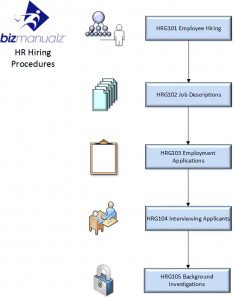How Do You Scale a Business?

How To Scale a Business Efficiently
Running a business isn’t easy, especially when it is small. 70% of small businesses fail during their first ten years. Every decision can have drastic consequences and impact the very survival of the business.
Sadly, it isn’t easy: there’s no textbook you can read that can give you a step-by-step guide on how to scale a business. Each business has its consumer base, challenges, and growth strategies. That being said, there are some broad strategies that you need to follow if you want to scale up your business efficiently, and we’ll go over the most important ones in this article.
Create a Robust Hiring Process

The hiring of a new employee is an expensive process. It takes time, money, and a thorough understanding of the needs of the organization, both today and in the future.
The first thing your company needs to do to scale up efficiently is to create a robust hiring process. Depending on the sector, finding the right candidates for a job can be extremely difficult. Some companies opt to pay recruiters thousands of dollars to find the right candidate. Others do multiple rounds of in-person interviews before making the final decision.
We can’t prescribe a precise hiring process here because each company is in a unique position with unique needs. What we can say with certainty, however, is this: a company needs a robust and objective hiring process to scale up efficiently. Ideally, the process reduces personal bias, includes objective judging criteria, and judges candidates based on a multitude of facets relevant for the job.
Pool of Talented People
Many small businesses rely on the owner and a few key employees to perform all the daily operations of the business. The first few employees are usually friends, family members, or otherwise associates of the owner — the business owner is usually deeply familiar with their skills and experience, and he doesn’t require any standardized hiring process to make his decisions. This quickly changes as you scale a business.
To hire your dream team, you will need to expand the pool of talented people you know and start to rely on these new hires to perform key tasks for your business. The quality of these new employees, their synergy with the rest of the team, and their productivity will determine how successful scaling up will be.
Employee Costs
Not only that, but as the team grows, you need a paystub template and payroll manager to keep track of the various employee costs associated with the employees. You need productivity tracking software to make sure you grade your employees on key, objective, quantifiable performance metrics, and you will eventually need an entire HR department.
Learn to Delegate Properly to Scale Quickly
Pick up any management textbook, and you’ll find an extended section about delegation — this is a testament to how important delegation is. Proper delegation can allow you to scale up your operations (temporarily or permanently) quickly, effectively, and without much overhead.
Delegating Specific Tasks
Although permanently scaling up your operations by delegating specific tasks to certain specialized companies is not only feasible but the best decision in a multitude of scenarios, and a lot of internet resources have been written about it. Below, we’ll explore how delegation can be extremely useful when scaling up your operations temporarily to meet spikes in demand.
Accommodate Varying Levels of Demand
Most business managers are keenly aware that their revenue streams are unsteady: they are affected by specific seasons, holidays, weathers, and much more. There are specific examples that are very clear: retail stores get busy leading up to major holidays. But there are also really surprising examples: game development companies have a lot of extra work in the 3rd financial quarter because a lot of publishers want to publish their games before the holiday season.
Whether it is seasons, geopolitics, or supply chains, most companies need to learn how to accommodate varying levels of demand, but it isn’t easy. It is really hard to find skilled temporary employees for specific periods during the year: you either have to hire them permanently (which means you’ll have overhead for the rest of the year) or your business has to contend with unmet demand (which can affect your revenues substantially).
Respond to Spike in Demand
Here’s where delegation comes in. By finding long-term specialized partners (both individual contractors and companies), you can scale up your operations very quickly to respond to spikes in demand. Do you want to quickly contract out extra shipments to another company? It is easy. Do you want contractors to work on graphic design because your in-house graphic designer can’t keep up with demand? It is very doable. Making efficient use of delegation will keep your company lean, help you scale up your operations quickly, and improve your profit margins.
Build Data-Driven Strategies 
Building a successful business is incredibly difficult, and there’s a lot of room for error. This is especially true when expanding/scaling up the business: expanding to the wrong market, releasing an unpopular product, or making untested changes to your existing products/services can all tank your ROI. This will not only put your plans of scaling up at risk, but they might also tank the business altogether.
Although there is no 100% way to ensure you’re making the right business decisions, you can adopt data-driven strategies that can substantially increase your chances of scaling up successfully, however:
- Data-driven strategies minimize personal bias: most business managers and owners have been in a business for at least more than a decade. And while this prevents them from being myopic, it also makes it harder to look at things objectively and divorce events from years of accumulated experiences, biases, etc. By following data-driven strategies, managers can view things more dispassionately and objectively.
- Data-driven strategies unearth broader trends: it is very hard to predict new, industry-changing trends. One of the consistently reliable ways to do it, however, is by analyzing large amounts of relevant data and trying to extract useful information about the industry from it. Almost all industry leaders that have managed to see broader trends and exploited them successfully to grow their companies relied on data-driven strategies to do it.
Scale a Business Efficiently
Many organizations strive for rapid growth: not only does it mean more money, but it also makes the company more robust. If a business owner wants to keep their company running for a long time, they must learn how to grow it. To scale a business efficiently, learn to create a robust hiring process, delegate tasks, and build data-driven strategies. These are just some of the many ways you can use tp help your company scale up.















Leave a Reply